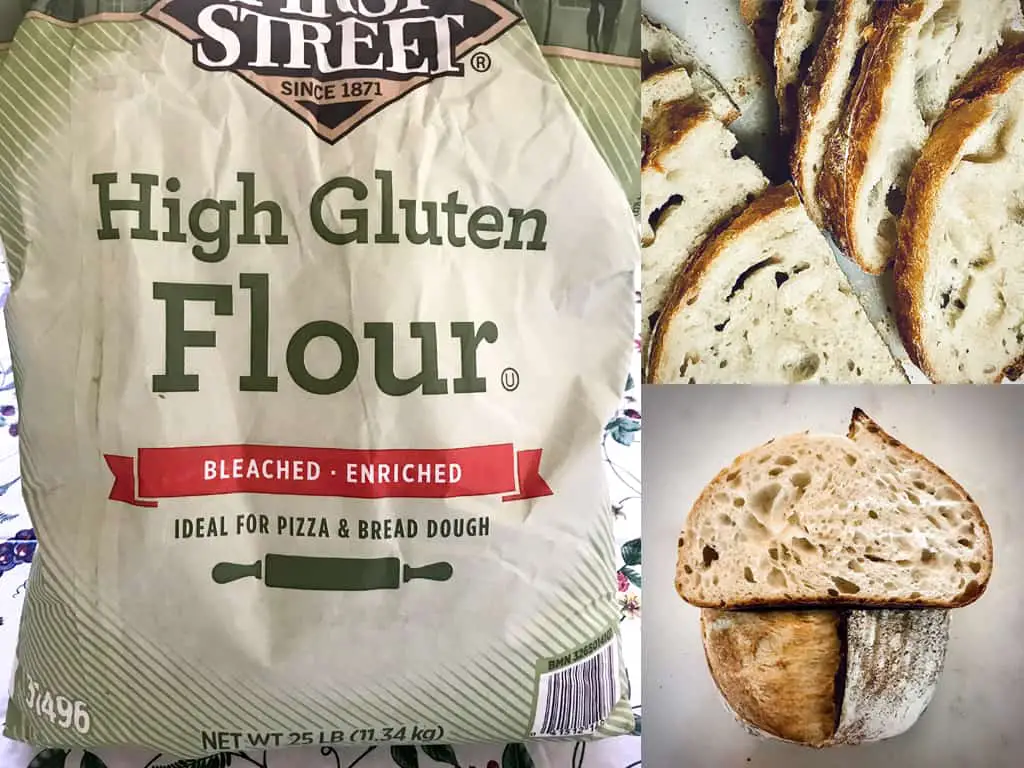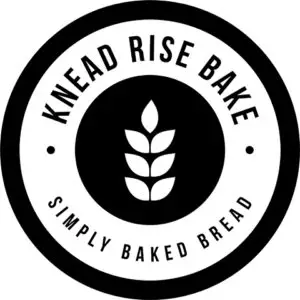In the early days of our sourdough adventures, we were looking for information on starter maintenance and unfortunately, we ran into a lot of contradictory information. What type of flour we needed to feed our starter and how often to feed it were two of the major topics we couldn’t find a clear answer on. Some people we talked to told us not to mix flours or change flour types once started, and others said we could change without any issues. It was quite frustrating, to say the least.
But, after successfully starting ours on our first try, and keeping it going over the last couple of years, we have to say in our experience, starters are way less complicated and require less maintenance than many say they do. We’ve found ours to be rather hardy and resilient, no matter what we feed it. Our two most common flours these days are all-purpose and bread flour because that is what we bake with the most. It just makes life easier, and cheaper. 🙂
The Simple Truth is, sourdough starters made from wheat flour can be fed a variety of flours interchangeably all while staying active and healthy as long as the flour comes from grains similar to wheat. There might be a subtle difference in flavor or activity levels depending on the flour used, but nearly any grain will provide the nutrients needed for the microorganisms in a starter to thrive.
As home bakers, this was reassuring to experience for ourselves, especially because we used to live in a small mountain town, and anything other than all-purpose or bread flour was 45 minutes away in the “Big City”. Things like Rye and Spelt were rarely in stock in our local grocery stores.
Why Will Most Types of Grain Flour Work For Starters?
The key thing that flour provides for a viable starter, is nutrition. The primary nutrition needed that is found in flour is starch. The level of starch does vary in flour types which certainly has an impact on a starter, but as long as it is a grain flour, it will have enough starch to keep it active and ready to bake with.
When thinking of flour in terms of starter nutrition, it is helpful to keep in mind that changing the flour type will mainly impact a starter via the amount of starch it has to feed on. Which, if you have ever altered the amount of flour that you feed your starter you already know it can withstand a change in the total amount of starch it receives. More flour, more starch. Less flour, less starch.
What Should I Expect If I Change My Flour Type?
In our experience, whenever we have changed the flour in our starter, we saw very little difference other than flavor and textural differences when using some less common grains and whole grains. We have heard that some people have issues with their starter struggling after changing flours. As we have never experienced this issue, we can only make a practical suggestion which is the same for fixing any sluggish starter. You simply need to feed it a couple of times until it becomes active again. Even though we have not needed to try it, we have heard from others that this works for them.
If you’re more of a visual learner, check out our video where we test whole wheat and spelt flour in our all-purpose/bread flour fed starter.
Play It Safe By Testing With a Levain
If you want a play-it-safe option, we suggest that you do a little test for your next bake. Create a levain (an offshoot of your starter) by pouring a little bit of your starter out into a bowl and giving it a feeding with a new flour. Then track how long it takes to get active. If it peaks at about the same time, go ahead and bake with it and compare the outcome. If it takes longer to get active, discard a portion and feed It again. It likely will only take a time or two before becoming just as active as your typical feeding. In doing it this way, you’ll learn what to expect with your starter.
If the starter peaked just fine, but the final bake was less than desirable just keep feeding your starter with the new flour and it likely will even itself over just a few feedings.
If everything just really struggles, give it more time. It’s highly likely that your starter will find a rhythm and balance before too long.
Is There Any Type of Flour to Avoid?
We are unaware of any grain that you cannot use in sourdough starters. However, we would advise against using bleached flour, as it could impact your starter’s activity in a negative way. This, in theory, makes sense, as bleaching flour alters the living organisms present. But in all honesty, the biggest issues with bleached flour has to do with trying to start a starter. One wants unbleached flour for starting a starter because the more yeast and bacteria living in the flour from the beginning the better.
In our experience, not just in theory, we’ve used it to feed our starter and noticed sluggish activity from time to time. It wasn’t enough to ruin anything, but enough to throw off our bulk and proof timing. Which after getting into a rhythm, having times thrown off can be a nuisance. So we stopped using it for feedings, but we use it to bake with if we are in a pinch. In fact, flour is hard to find these days (written during the pandemic of 2020), and we’re in the process of using up a large bag of bleached bread we were thankful to get our hands on.
As you can see, the bakes with bleached flour are turning out just fine! 🙂


